Next Level
Now that NCAA athletes have the right to profit off their names, the world will value Longhorns in a whole new way.
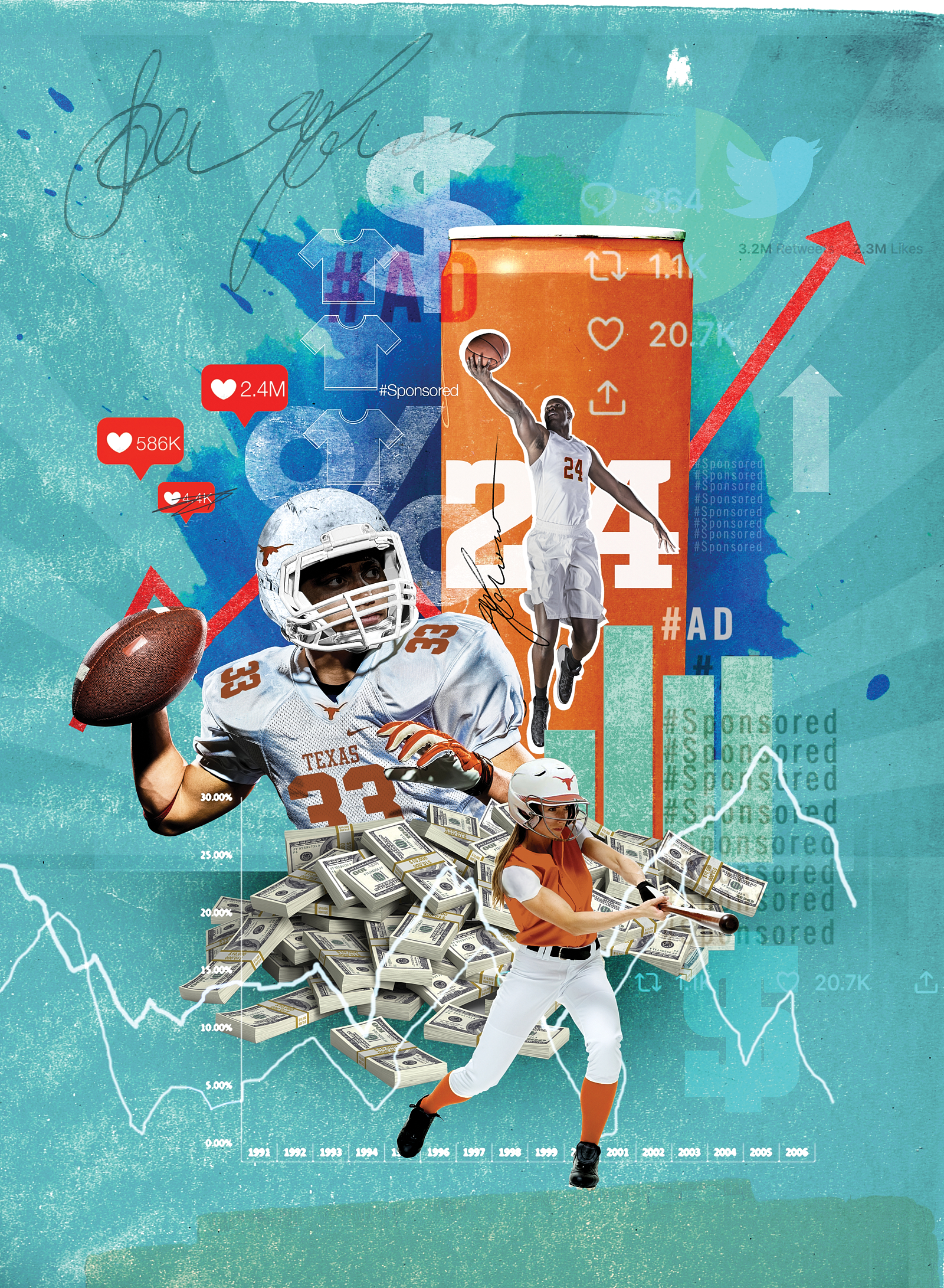
"Constantly on the move," says Chanel Brissett in a voiceover. The camera zooms close to the UT sprinter and hurdler’s face, quickly pans to her performing a stretch, and her sentence is completed by UT swimmer Drew Kibler and UT basketball player Christian Bishop: “Whether I’m in class or on the way to practice, I have to be at my best, so I need to stay hydrated and energized.”
It's an ad for sport drink and supplement company Optimum Nutrition, and it features Brissett running sprints and drills, looking focused and determined. Flash to Bishop dribbling a basketball between his legs in a moonlit parking lot. Then Kibler slinging a backpack across one shoulder, on his way to practice; in another shot, he drops to the ground and starts doing pushups. It’s a slick campaign the three athletes participated in last winter to promote a new orange-flavored energy drink. While nothing about it seems particularly remarkable—a standard ad like the ones you see during the Olympics, complete with inspirational and upbeat hype music and sweating athletes—it’s significant because it’s one of the first endorsement deals they’ve earned a paycheck for since NCAA athletes earned the right to profit off of their own name, image, and likeness (NIL) last year.
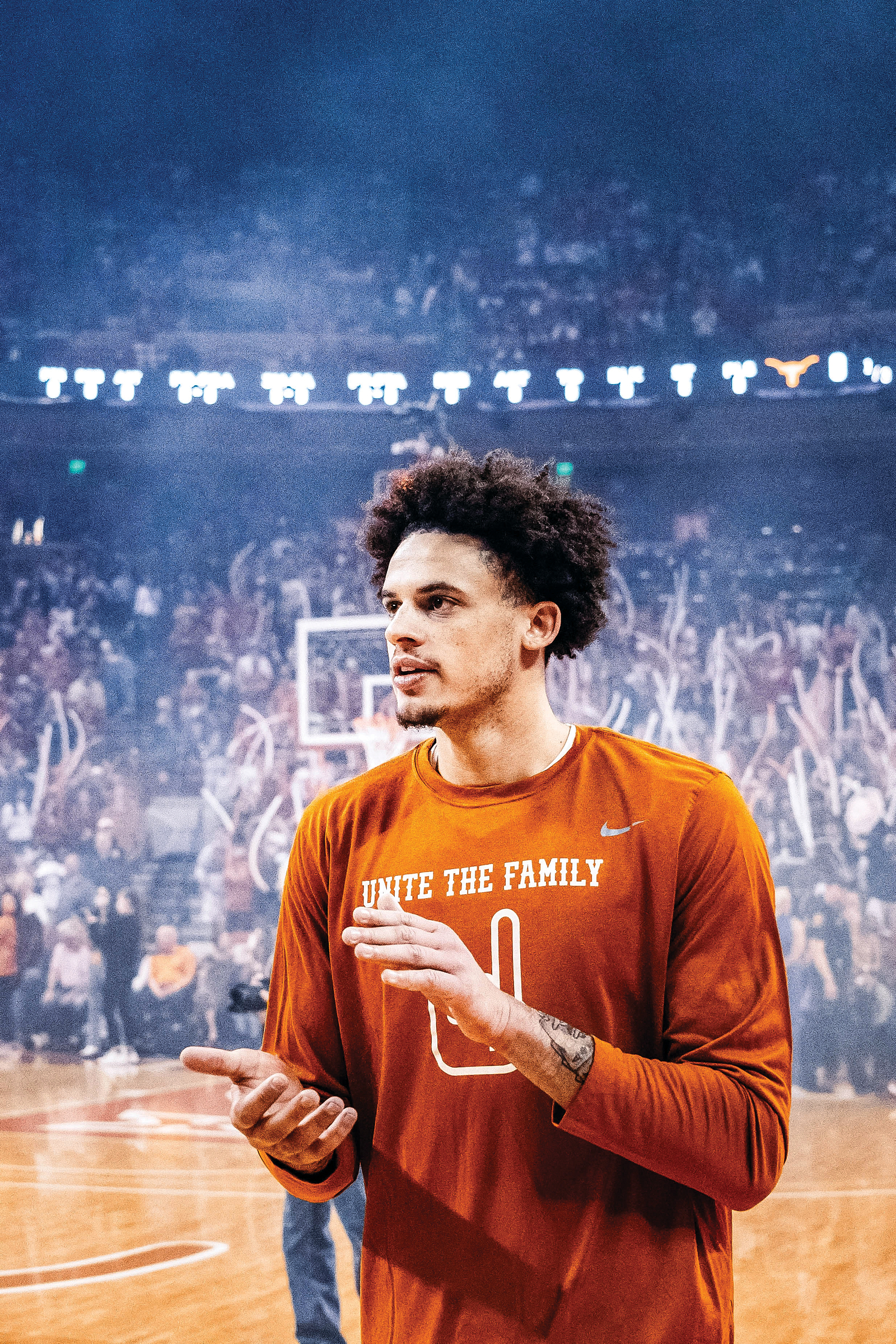
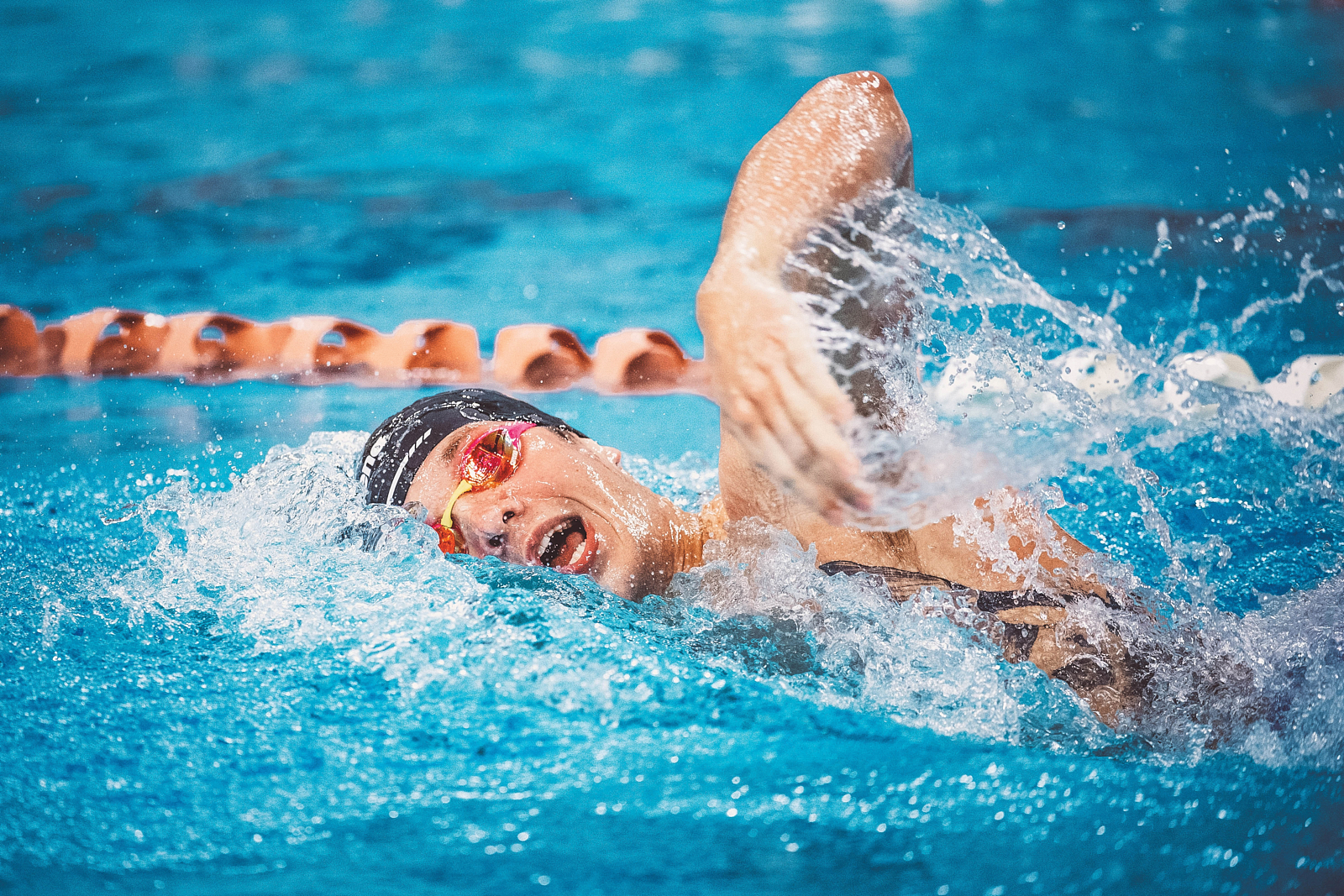
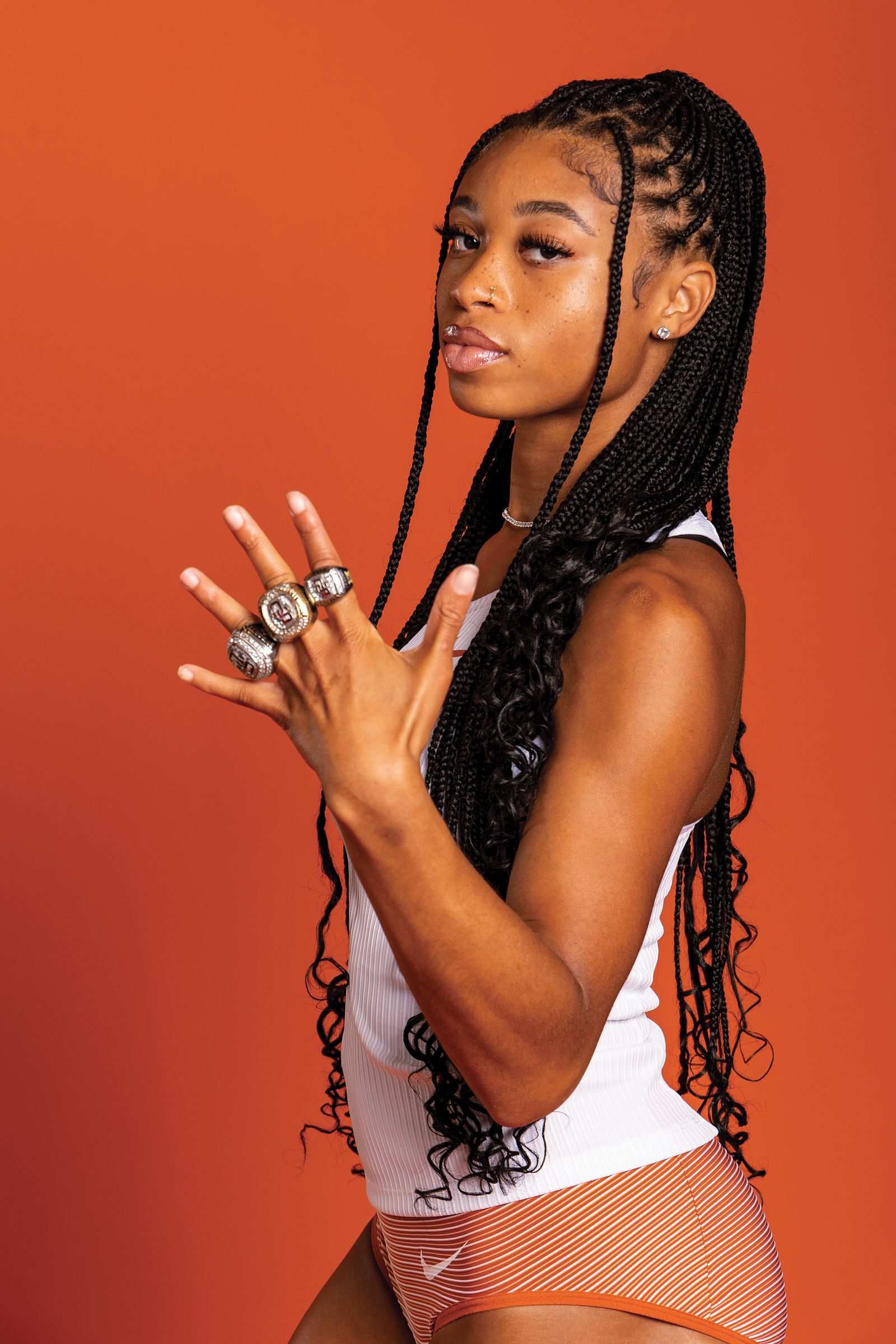
Last June, the NCAA approved a pivotal plan allowing student-athletes to receive payment for their celebrity, overriding rules on amateurism and athletics eligibility that haven’t budged in decades. When Brissett first heard the news about the NIL policy change, she says, “It was very exciting to know that people actually valued athletes in that way.” The 22-year-old graduate student took home silver and bronze medals at the 2019 Pan American Games in the 100-meter hurdles and 4x100-meter relay, and became a Big 12 Champion in the 60-meter hurdles at the 2021 Outdoor Track and Field Championships. However, all glory and potential revenue generated from her successes were never her own—until now.
There’s a long history of student-athletes being penalized for even the slightest NIL infractions, such as Nebraska quarterback Eric Crouch, who in 2000, was temporarily suspended for accepting a free plane ride and sandwich. He wasn’t allowed to resume playing until he donated $22.77 to charity to even the scales. The NCAA voted to make these changes only in the 11th hour and under much political pressure. Brissett didn’t think the new policy would actually go through.
In September, Longhorn football running back Bijan Robinson signed a five-figure deal with the San Antonio and Houston-based restaurant Pinkerton’s Barbecue. The Twitter announcement alone—heralding the “phenomenal young man” and “electric football player” as officially “Powered by Pinkerton’s”—got over 1,200 likes.
These opportunities are uncharted waters, both for the athletes themselves, and for the university, which has not only a host of legalities to consider but also the well-being of the young people in their care. It’s a complicated, brand-new era—despite it being, for many, a long time coming—and there’s much to parse. There are legal dos and don’ts and things that will continue to change as the NIL laws vary by state and policies vary by school. Here’s a sense of what the NIL landscape will look like in the short term, how UT is navigating this transition, and a glimpse at what Longhorn athletes make of this new world they find themselves inhabiting.
Effective July 1, 2021, NCAA college athletes became eligible to profit off their own name, image, and likeness, regardless of whether their state had passed its own NIL law or not. Congress has yet to pass a federal NIL law, so in place of a permanent blanket policy, universities in states without a state law are allowed to create their own rules, granted they comply with the NCAA’s interim NIL policies. Gov. Greg Abbott, BBA ’81, Life Member, Distinguished Alumnus, signed a Texas senate bill also effective July 1, SB 1385. Stipulations include: no deals allowed with or endorsing steroids, gambling, illegal firearms, alcohol, drug, or sexually oriented companies. It also restricts Texas schools from directly compensating student-athletes for their NIL, requires that all deals be disclosed to the school, and that student-athletes not be considered employees. Unless they go through a licensing approval process, athletes cannot wear university logos or institutional trademarks while participating in NIL activities, nor can they use content provided by the university.
The issue of name, image, and likeness permissions has been up for debate for many years, and the current sanctions arose from two court cases. In 2014, a class-action lawsuit in California, O’Bannon v. NCAA, argued that the NCAA and its schools were profiting off the names and likenesses of athletes in video games and other works related to college athletic teams, while the depicted athletes never received a dime. The association’s actions were ruled to be a violation of anti-trust law, setting the stage for NCAA v. Alston in 2021. Again, the Supreme Court ruled against the NCAA, this time prohibiting the association from setting limits on education-related benefits like computers and graduate scholarships. It wasn’t so long ago, in 2013, that former Texas A&M quarterback Johnny Manziel was suspended for selling his autograph after winning the Heisman Trophy as a freshman. Now, thanks to the pressure these cases built and this new legislation, the field is wide open. It’s one of the biggest changes collegiate sports have seen in decades. Student-athletes can now capitalize on their NIL by selling autographed posters, participating in meet and greets or speaking engagements, hosting workshops and training sessions, writing blogs and selling ad space, or promoting products to their followers on social media, among other marketing campaigns and endorsements.
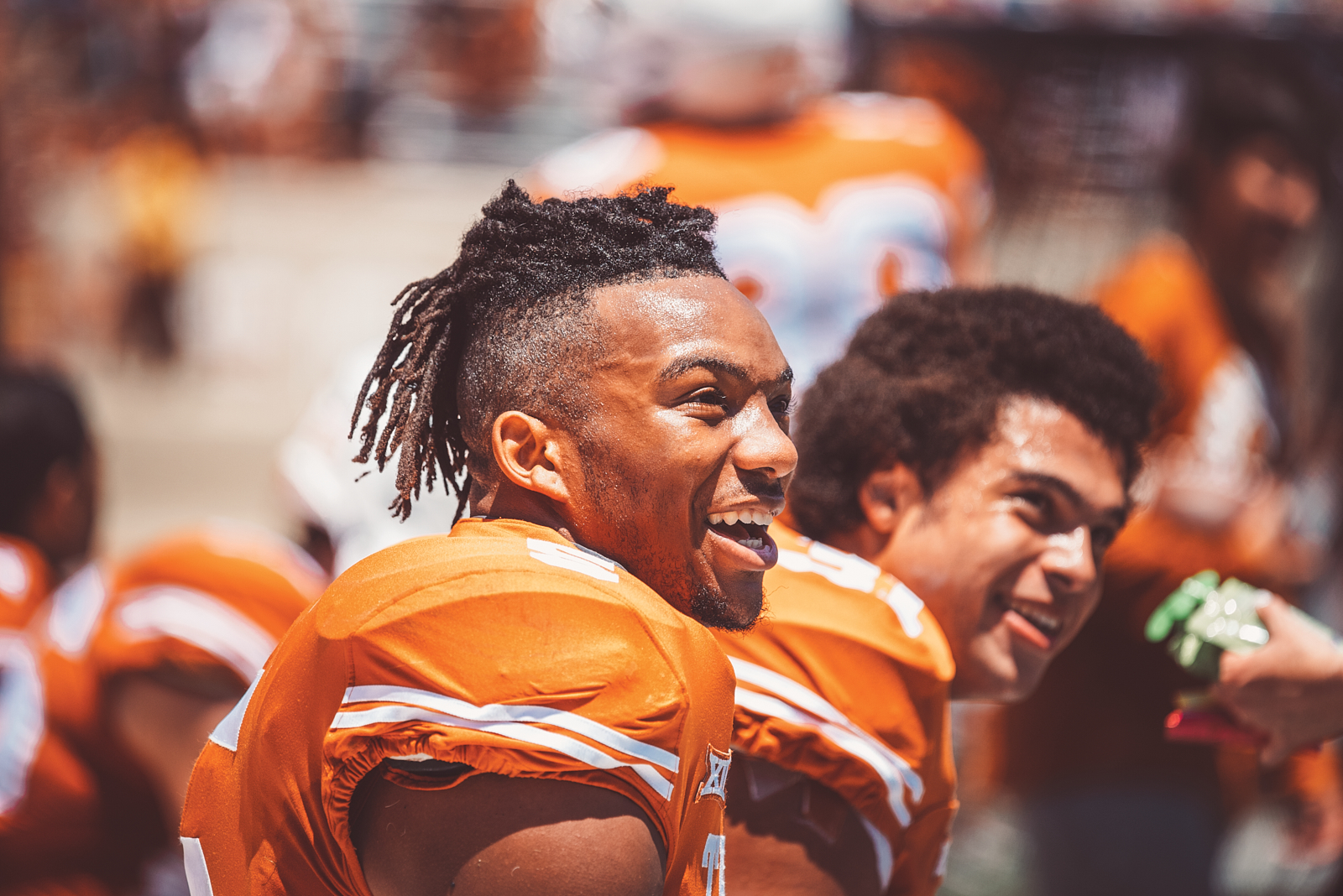
UT’s athletics department wasted no time adding on NIL-specific training to the career development-oriented 4Ever Texas program they launched in 2020. Prior to SB 1385 being passed, they created a series of workshops where students are educated on financial literacy, personal brand development, business formation and entrepreneurship, and career opportunity management. Texas is collaborating with companies such as Opendorse, a platform where student-athletes can build profiles that brands and businesses can easily find and connect with them through; the NIL advisory firm Altius to help with general NIL consulting; and they had local agency Zilker Media come by in the spring to lead a session about brand building. Because the law does not allow the university to advise students on deals or contracts, UT is trying to give student-athletes all the tools they need to confidently ink these deals on their own ... sort of like taking an open-book exam.
UT’s Assistant Athletics Director for Student-Athlete Development, Arin Dunn, puts it this way: “We kind of call it putting together your team. As a UT student-athlete, you have a built-in, world-class support system. You’ve got strength and conditioning coaches down the hall; you’ve got nutrition, student services, compliance; you’ve got everything in one building. For when you go on to the next level, particularly if you’re in an Olympic sport, you’ve got to put together your own team. And part of that team is your agent, your rep, your financial adviser, your PR person. And so how do you vet those people?” That’s what they’re teaching student-athletes to do in the workshops. The conversations athletics staff now have with each and every athlete are an accelerated version of what they’ve traditionally done with the handful of Longhorns who play professionally after college.
And while UT Athletics cannot advise student-athletes about a contract, they do review each one to make sure it complies with state law. From there, they are at least able to direct athletes to an on-campus office where legal services are available to all students (an important distinction; if the attorney worked directly with athletics, UT would be breaking the stipulation about not advising student-athletes on their contracts). Protecting the student-athletes is a major priority for Dunn and his colleagues. There are so many fine print details athletes need to be aware of—visa implications; how earnings might affect financial aid; and tax classifications, like how NIL earnings affect their family’s taxes if they are still listed as a dependent.
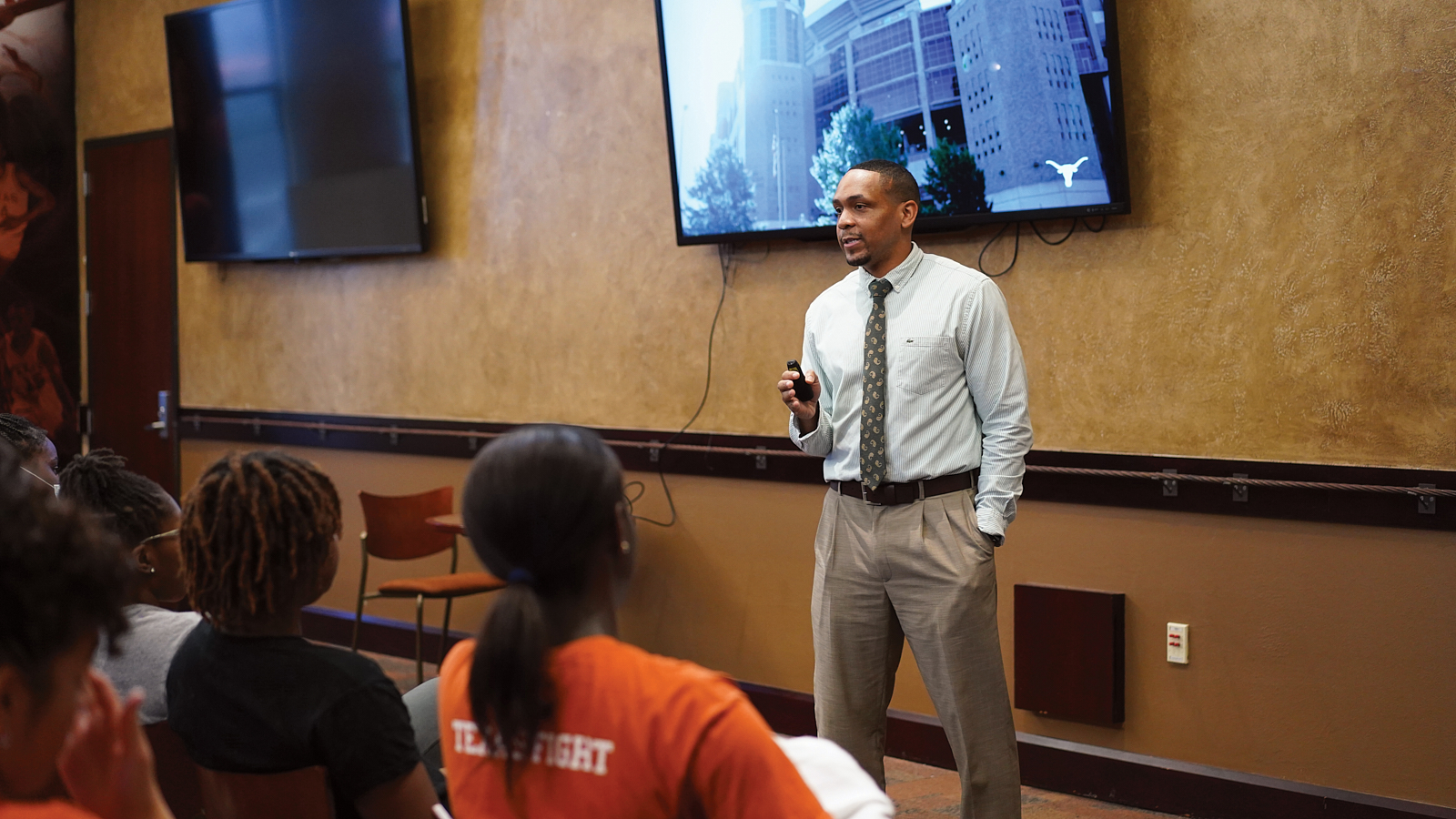
UT is one of the first universities to provide a school-specific NIL marketplace, which is called LEVERAGE Lineup. It’s designed specifically for student-athletes and gives them direct access to brands that are looking to make deals. Brands can reach out directly or go through what are essentially matchmaking services to find specific athletes that align with their mission and values. There’s a whole slew of apps, marketplaces, and platforms offering these services now. However, the university is interested in helping Longhorn athletes get connected with group licensing deals.
One of the most publicized group sponsorships the agency facilitated was the deal Georgia Tech made with TiVo for 90 football players—they make social media posts about the company in exchange for branded silk pajamas, prepaid debit cards, and other perks. The school also received upgrades to its audio/visual equipment and team facilities. Brigham Young University brokered a similar deal for their football team with a protein bar company called Built Bar, granting full tuition for every player in exchange for a couple of in-person and social media endorsements. Some critics have voiced concerns that allowing universities to facilitate deals in this way will open the door for misuse, that schools—through securing major sponsorship deals like these—will be able to pay star players what amount to salaries via third parties, leading to unfair recruiting practices.
Already, some athletes have garnered lucrative deals, while many others don’t yet have defined personal brands or large followings. That’s why in some sports, despite the inescapable public nature of their deals, which are primarily shared on social media, teammates are taking a “don’t ask, don’t tell” approach to avoid any potential jealousy, competition, or weirdness. UT’s football team keeps their deals to themselves—or, as much as they can for deals that exist across social media. “Because it can be a distraction,” Robinson told KXAN, “and it can hurt just who you are as a team; it can divide you as a team.”
For others, talking about their deals is part of the package. Brissett, the track athlete who starred in the Optimum Nutrition TV commercial, gets paid to recruit her teammates and athletes from different sports to join PlayBooked, a NIL marketplace platform she uses to get deals. The way she sees it, at the end of the day, it’s good, easy side money. “When you’re an athlete and you’re a student, you can’t work the day,” she says. “Being a student-athlete takes up a lot of time. So it’s just great to know that you can be able to make some money outside of your daily priorities. And it’s not too much of a hassle.”
Then, for those who aren’t interested in pursuing deals or who just aren’t having any luck landing them, there are other avenues opening up for creating revenue. This semester, UT began an Academic Enhancement Benefits program—something the university could not do in the past under NCAA rules—allowing student-athletes to earn up to $5,980 per year for good grades and participation in the program.
There are players who are using their platform for altruistic causes, too. Andrew Jones, a shooting guard on the basketball team, had to take medical leave and redshirted for two seasons when he was diagnosed with leukemia. Now in remission and back on the court, Jones is using his NIL earnings to fund cancer research. Partnering with a cancer research foundation, he donates 10 cents of every dollar he earns.
Folks on the other end of the deals are already thinking of ways to give back, too. When the NIL news dropped last year, suddenly, everyone wanted to get involved, including Nick Shuley, ’99, a veteran music and sports marketer who has worked with Lance Armstrong and pro football and baseball player Bo Jackson. Many of Shuley’s friends are former student-athletes, and in their conversations about the new NIL legislation, his buddies mentioned how unfair some big deals can be, with the athlete not seeing much of a payout.
He wondered if there might be a way to help student-athletes in this new (to them) world of profiting off of photo ops and speaking engagements. Shuley was inspired by Division Street, the company founded by Oregon alumni last year to help student-athletes navigate these new opportunities. The next thing he knew, he was launching Clark Field Collective, a “universal basic earnings” program for Longhorn athletes, with lofty goals of becoming the largest fund of its kind in the country. In a short time, they’ve already raised $10 million.
With an alumni base as deep-pocketed and engaged as Texas’, Shuley says the sky’s the limit for what they can do to support and compensate Longhorn athletes. There’s a demand for every type of athlete in every sport, Shuley believes. “It’s just finding the right people and figuring that out,” he says. The tough part is just that the university can’t do it for the athletes. So that’s where Clark Field Collective comes in.
He describes his goals for the collective as coordinating “experiences” and “interactions” rather than straight endorsements and sponsorships. “That’s the goal, right?” he says, “to have the conversation with each individual donor—what’s a win for you? What are you looking for? Because there are many NIL functions these kids can perform.”
The board is made up of former Texas student-athletes who will serve as “team captains” for each sport to ensure equal representation and support for athletes across all programs. So far, they have volleyball, basketball, and football covered, with All-American Juliann Johnson, BS ’11, Life Member, former NBA player T.J. Ford, BS ’17, and NFL safety Kenny Vaccaro, ’12.
Looking out for the well-being of these young people is not just a matter of protecting them from predatory contracts and warning them against shilling for products and companies they don’t support. Ariel Dulitzky, a UT law professor whose recent work explores the intersection of sports and human rights, says his top concern for student-athletes as they pursue NIL deals is their mental health.
“Sadly, they’re living in a very stressful environment,” he says. “One year ago, we were reckoning with Black Lives Matter and the controversy of the anthem ‘The Eyes of Texas.’ So all that, even if it’s not on the surface, it still is out there, and some students struggle with it.” Then there’s the fact that COVID-19 has defined their collegiate experience, and it’s not yet a thing of the past.
“Additionally, it puts more pressure on if you see that some of your teammates are already making money or you are not making money or other sports are making money and your team is not making any money—that will put additional psychological stress.”
Then there are the disparities between sports to consider. Unless dedicated actions are taken, the same pay gap currently existing between sports, particularly women’s teams, will just replicate itself in the world of NIL deals. Dulitzky says, “It’s very likely that women’s sports will suffer more than men’s sports, because traditionally there is more investment in men’s sports.” This, despite some of the most successful programs being women’s teams.
That disparity is something groups such as Clark Field Collective are concerned about too, and they plan to combat it by setting aside funds to invest in less traditionally profitable sports and their players. So for instance, if a brand wants to partner with the UT quarterback on a million-dollar-deal, Shuley would ask if they’d be interested in setting aside some of that sum for say, women’s golf. “I think that’s the cool part about our alumni base,” he says, “they understand the importance of uplifting the school and not just, How can I help football?”
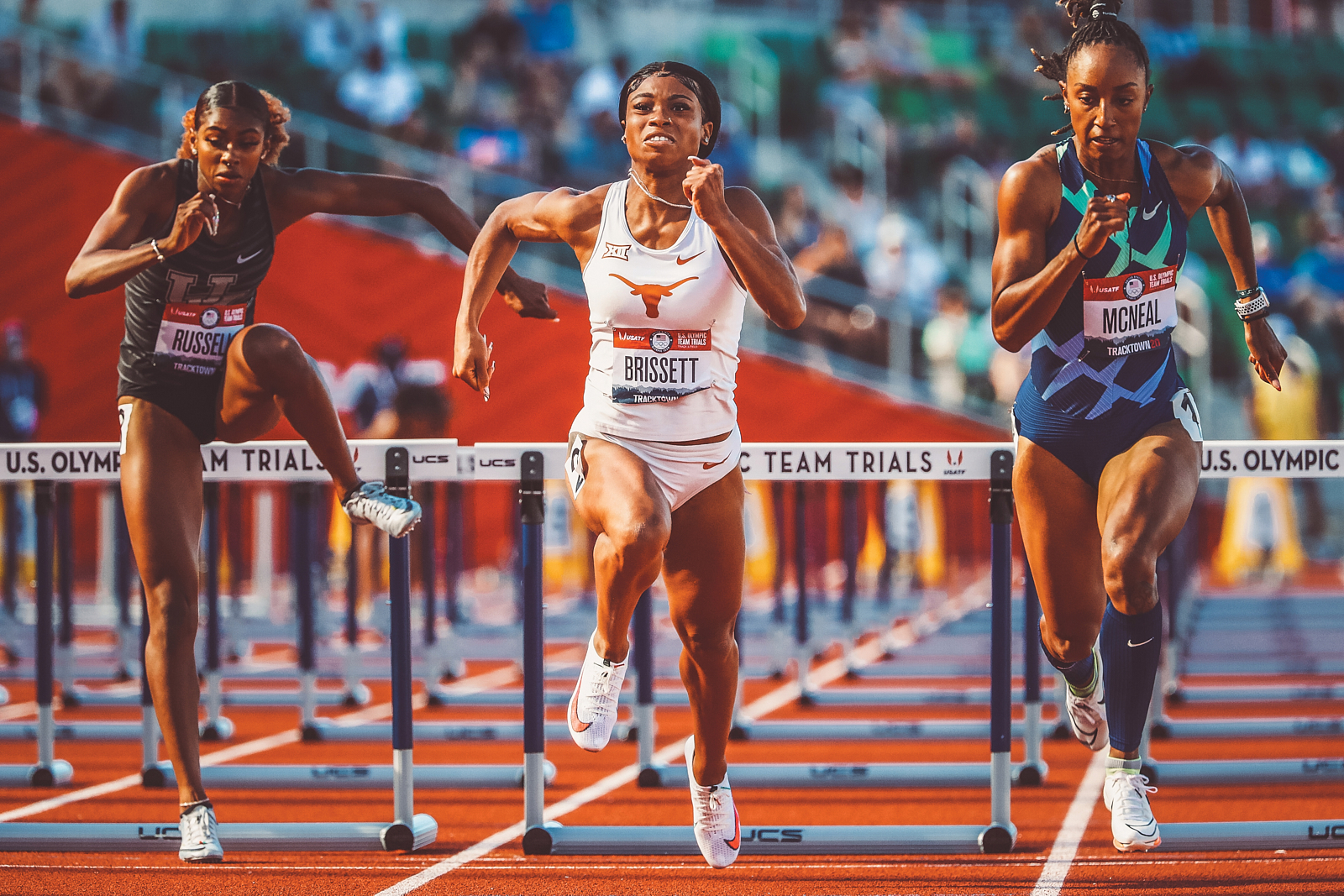
The majority of Brissett’s NIL deals have been long-term partnerships, each one netting her five figures. In addition to the Optimum Nutrition campaign, she’s had partnerships with a gummies supplement company, a skincare brand, an activewear line, and recently worked on a promo for cryptocurrency. For a post to her main Instagram feed, she charges about $275, and to promote a brand in an Instagram story, which lasts only 24 hours, her rate is typically $100, but she says those numbers vary based on the task and timeframe. In January, she also received her real estate license and works part-time for an Austin startup called Housing Scout. She’s paid on commission to help UT students find apartments and houses in their budget. She pours all her earnings into stocks and personal investments, “nothing special,” she says, but building that nest egg will set her up for financial success after graduation. It’s by choice that Brissett isn’t as active as other influencers, and she may not be raking in the six-figure packages she knows some other UT athletes are pulling, but this is the type of compensation she never would have been able to previously access as a college athlete. These paid promotions don’t eat up the time and energy away from practice and studying that clocking in would.
At the end of the sports drink commercial Brissett starred in, she stares down the camera with a tough game face, then strides down a field, quick as a jolt. “I give everything I do my all,” she says. And now, she’s able to see real monetary rewards for that 100 percent effort and drive she brings to the table.
Credits: Illustration by Sarah Hanson; UT Athletics





